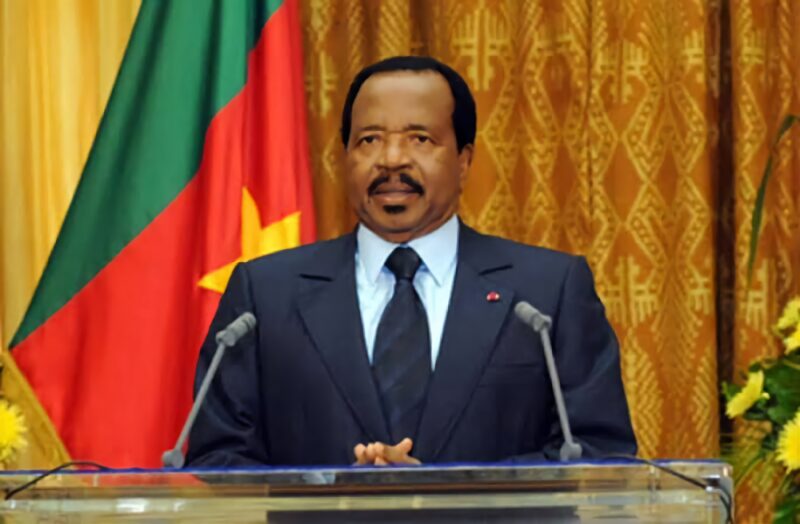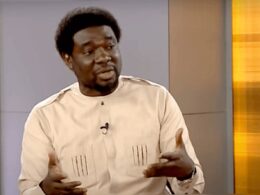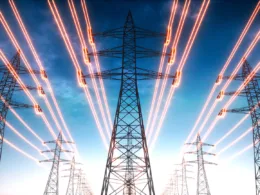Cameroon’s 91-year-old President Paul Biya is reportedly in good health, according to a statement released by the government on Tuesday.
YAOUNDE, Cameroon-This clarification comes after widespread speculation regarding the president’s health, fueled by his absence from public events and rumors circulating across media platforms. Government spokesperson Rene Sadi labeled the claims about Biya’s condition as “pure fantasy,” insisting that the president is healthy and will return to the country in the coming days.
Paul Biya, who has been in power since 1982, was last seen in public during the China-Africa forum held in Beijing in early September. His unexpected failure to attend a summit of French-speaking leaders in France last weekend further amplified concerns about his health, leading to an outcry from opposition groups and civil society organizations. In the absence of any official updates until now, questions had mounted about the status of the nonagenarian leader.
According to the statement by Rene Sadi, after Biya’s engagement in Beijing, he made a private visit to Europe. The government, however, has not disclosed his exact whereabouts or provided any additional details about his trip.
“The head of state is in good health and will be returning to Cameroon in the coming days,” Sadi said,
seeking to dispel the wave of rumors.
Yet, this official statement has done little to fully pacify opposition parties and concerned Citizens. Opposition leaders and civil society activists have been calling for more transparency regarding the president’s health and his ability to continue leading a nation that is currently grappling with several pressing challenges. One opposition figurehead remarked, “At his age, and considering the fact that he has not been regularly involved in day-to-day governance for a long time, the country needs to be prepared for what comes next.”
A Politically Sensitive Time for Cameroon
The timing of Biya’s absence and the resulting speculation come at a crucial moment for the country that has experienced relative political stability for much of the last few decades but is now facing a range of serious threats. The country is currently in the throes of a secessionist war in its English-speaking regions, a conflict that has resulted in thousands of deaths since it erupted in 2017. The war has also displaced hundreds of thousands of people, leaving many to wonder what leadership will look like in a post-Biya era, particularly in such a tense and divided political landscape.
In addition to the ongoing secessionist war, the country continues to grapple with Boko Haram’s insurgency in its northern region. The militant group has been a persistent security threat for years, leaving the country’s military stretched thin. Although the Cameroonian military has had some success in combating the insurgency, the conflict remains unresolved, and stability in the northern regions remains precarious.
Political observers both inside and outside of the country have expressed concerns over the country’s lack of a clear succession plan. With Biya having served as president for over four decades, there is no obvious replacement within his party, the Cameroon People’s Democratic Movement (CPDM). This uncertainty about who might lead the country after Biya has led to increased anxiety, not only within the country but also among its regional and international allies.
A minister from another African nation who attended the summit in France remarked anonymously that Biya’s absence had not gone unnoticed by his peers. “He’s over 90, he hasn’t been involved in day-to-day business for a long time, but if he dies, the situation is likely to get out of hand,” the minister said. “No one has prepared for the aftermath. We don’t know what Cameroon would be like without Paul Biya.”
The Impact of Biya’s Absence on Cameroon’s Future
One of the major concerns raised by political analysts is the potential for instability in Cameroon should Paul Biya die or become incapacitated while still in office. His absence from governance is already a matter of concern, and without a clear successor in place, the country could face significant challenges in maintaining its current political structure.
Cameroon has had only two presidents since gaining independence from France and Britain in the early 1960s. Ahmadou Ahidjo was the first, ruling from 1960 until he voluntarily stepped down in 1982, handing power over to his then-prime minister, Paul Biya. Biya’s reign, however, has been marked by a consolidation of power within his own party, the CPDM, leaving little room for the development of a robust opposition or the rise of other political leaders capable of leading the nation.
In recent years, calls for Biya to step aside have intensified, particularly as his age has made his ability to govern a topic of national debate. His 2018 re-election was marred by allegations of fraud and intimidation, with opposition leader Maurice Kamto and his Cameroon Renaissance Movement (CRM) party emerging as the most vocal opponents. Kamto, who claims he won the 2018 election, has since been detained multiple times for his anti-government protests, further highlighting the tense political climate in the country.
Opposition leaders, like Kamto, have continuously criticized Biya’s extended rule, arguing that Cameroon’s leadership is out of touch with the realities facing the country today. “The country cannot continue to be led by someone who is rarely seen in public and who, at his age, is not fit to carry the weight of the nation,” Kamto stated in a recent interview.
Regional and International Concerns
Cameroon’s political future is not only a concern for its people but also for the broader West and Central African regions. Cameroon plays a crucial role in the stability of the region, bordering six countries—Nigeria, Chad, Central African Republic, Gabon, Equatorial Guinea, and Congo. Political turmoil in Cameroon could have a ripple effect, further destabilizing a region that has already seen several military coups in recent years. Since 2020, eight coups have taken place in West and Central Africa, including in Guinea, Mali, Niger, Burkina Faso, and Gabon.
International observers, particularly from France, the European Union, and the African Union, have been closely monitoring the situation. France, Cameroon’s former colonial power, maintains significant economic and political ties with the country. Paris has been a key partner in regional peacekeeping and counter-insurgency efforts, and any instability in Cameroon could severely impact French interests in the region.
A Nation Waiting for Clarity
For now, the Cameroonian government insists that Paul Biya remains in good health, and the president’s return is expected soon. However, until he is seen back in the country, the questions surrounding his leadership and the future of Cameroon will persist. With opposition leaders and civil society groups continuing to press for transparency, the nation is on edge, awaiting the next development in this prolonged saga.










Join our Channel...